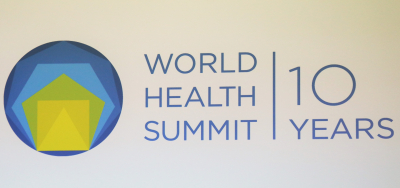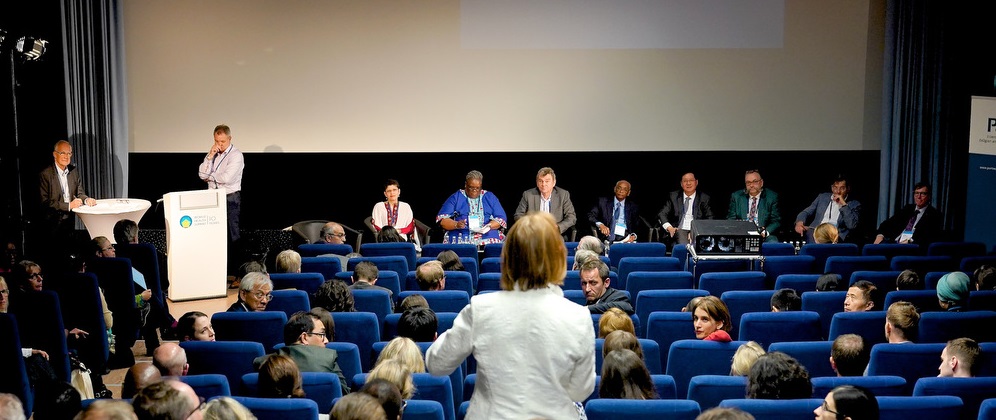


On 14 October, IAP hosted a workshop in the frame of a new initiative, ‘Respect and Dialogue’, on the occasion of the 10th World Health Summit in Berlin.
The ‘Respect and Dialogue’ initiative aims to promote better understanding of people and their cultures and ideas irrespective of origin, religion, ideology or personal priorities. As it moves forward, ‘Respect and Dialogue’ will: (a) use health as a specific entry point for the Sustainable Development Goals (SDG) and (b) join forces with emblematic places that bear witness to peaceful intercultural dialogue throughout human history and that consider it part of their mission to actively drive this dialogue today and in the future. Collectively, IAP member academies and these ‘symbolic places’ will bring together experts and opinion leaders from science, policy, religion, industry, civil society and art, thereby contributing to global, open, free, peaceful, forward-looking and enlightened discussions in order to help overcome intellectual conflict and physical violence within and between societies.
 The workshop in berlin, jointly chaired by Jeremy Farrar (Wellcome Trust) and Pierre Corvol (Académie des Sciences, Paris), attracted great interest among the World Health Summit participants. The panelists represented cultural institutions such as the Humboldt Forum and the Library of Alexandria, religious actors, notably the Partnership for Religion and Sustainable Development (PaRD), and science networks, such as Sapiens 5.0, citizen science experts, as well as experts nominated by several IAP member academies.
The workshop in berlin, jointly chaired by Jeremy Farrar (Wellcome Trust) and Pierre Corvol (Académie des Sciences, Paris), attracted great interest among the World Health Summit participants. The panelists represented cultural institutions such as the Humboldt Forum and the Library of Alexandria, religious actors, notably the Partnership for Religion and Sustainable Development (PaRD), and science networks, such as Sapiens 5.0, citizen science experts, as well as experts nominated by several IAP member academies.
Panelists and the audience discussed the cultural and religious determinants of health and potential levers to improve the wellbeing of all people. This is not a merely academic debate – a clash between science and religion can cost lives, e.g. when leaders abuse religion and culture as an excuse for stigmatization of certain diseases, gender discrimination or violations of human dignity. Participants agreed that the scientific community has to take responsibility and needs to reach out both to the public and to religious groups, e.g. through joint programmes in schools or museums, to build trust and make societies more resilient against populism, nationalism and extremism.
Cultural heritage objects from museums and other collections can play an important role to stimulate concrete discussions on the underlying values of societies and humankind as a whole, including concepts of health and spirituality. Participants agreed, furthermore, that solutions to the current challenges increasingly need participation from the Global South. The contribution of new technologies, including IT and artificial intelligence, as well as of science-driven business and investment models towards achieving the SDGs need to be further explored as well.
Summarizing, the moderators encouraged the scientific, religious, cultural heritage and political communities not only to reach out beyond their own ‘bubbles’, but to do so with humility and openness to learn across different cultures and sectors. Even though it is important to involve young people in these kind of activities, it is no solution just to pass on the challenge to the next generation. Unless all of us learn to bring ‘Respect and Dialogue’ to the discourse, we will continue to live in parallel silos, none of which is able to provide the answers to today’s challenges on its own.
The World Health Summit is one of the world’s most prominent strategic fora for global health. The interdisciplinary, international event traditionally convenes stakeholders from politics, civil society and the private sector in an atmosphere of academic freedom. IAP is part of the M8 Alliance, a collaborative network of academic institutions which provides the academic think tank of the World Health Summit (www.worldhealthsummit.org).
Credit: Nora Anton, WHS Foundation